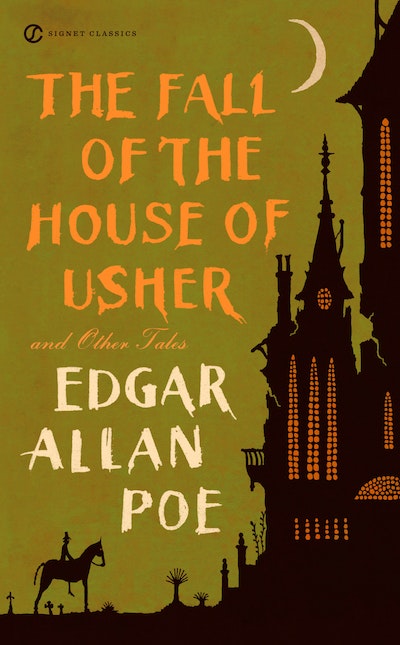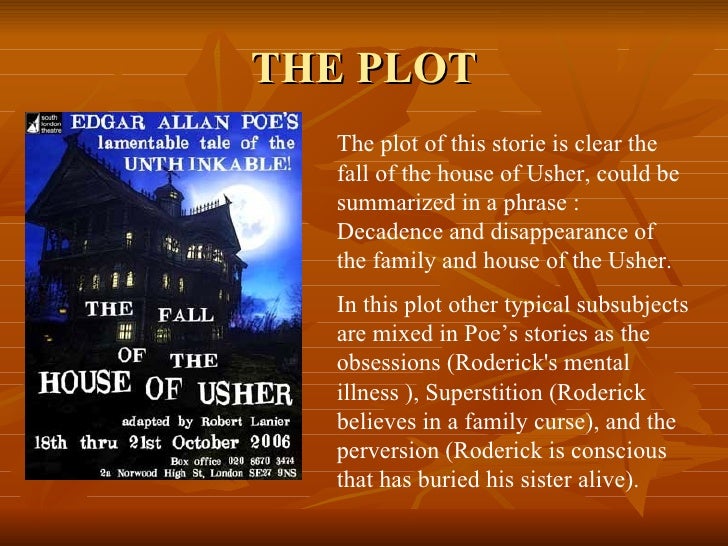Table Of Content

The House of Usher is the place or mansion that the narrator visits and the main action of the story occur. The house of Usher falls at the end of the story into the pool of water situated before the house. The small crack that the narrator sees when he enters the house foreshadows the fall of the house. Since from the beginning of the story, the readers see that there is something wrong with the house, and certainly, the fissure/crack splits the house and destroys it.
Every Edgar Allan Poe Reference in The Fall of the House of Usher - IGN
Every Edgar Allan Poe Reference in The Fall of the House of Usher.
Posted: Sat, 28 Oct 2023 07:00:00 GMT [source]
Be Tough on Dirt But Gentle on Your Body With the Best Soaps for Sensitive Skin
Here is the genesis of this type of story, created almost one hundred and fifty years ago in plain, no-nonsense America, a new nation not even sixty years old. Whether the reader is trapped by the house or by its inhabitants is unclear. Poe uses the term house to describe both the physical structure and the family. On the one hand, the house itself appears to be actually sentient, just as Roderick claims.
Unlock your FREE SparkNotes PLUS trial!

The night of the storm, Roderick comes tothe narrator’s room in a state of hysteria and shows him the glowing atmosphereemanating from the house and the grounds. When the narrator begins to read astory to calm him, Roderick sits in a chair and mumbles. In his mumblings hereveals that he has been hearing scrapings from Madeline’s vault all week, andhe fears he buried her alive. The prospect of burying Madeline prematurelyfills him with guilt, contributing to his descent into madness. All ofRoderick’s worst fears are confirmed when Madeline returns and collapses onhim, killing them both. The house sinks into the tarn, forever burying the lastof the Usher line.
The Fall of the House of Usher Gloom and decay in Poe’s gothic parable

Vampires had to be dealt with harshly; thus, this accounts for the difficulty Lady Madeline encounters in escaping from her entombment. In this view, the final embrace must be seen in terms of the Lady Madeline, a vampire, falling upon her brother's throat and sucking the last drop of blood from him. For some of the widely differing interpretations, the reader should consult the volume Twentieth-Century Interpretations of Poe's "Fall of the House of Usher." One key to the story is, of course, the name of the main character. Thus, the narrator is ushered into the house by a bizarre-looking servant, and he is then ushered into Roderick Usher's private apartment and into his private thoughts.
Edgar Allan Poe
A storm rages outside, and despite efforts to reason withhimself, he shakes with terror. He paces around the room, and Roderick entersin a state of restrained hysteria. The storm intensifies, and objects in theroom glow with unnatural light from the mist that surrounds the mansion. Usher moves hischair to face the door, murmuring under his breath while the narrator reads tohim.
The readers are left alone with the narrator as it is such a haunted place. Even though the narrator is the boyhood friend of Roderick, he does not know much about him – even he does not know the basic fact about him that he has a twin sister. Poe makes the readers ponder on why Roderick contacts the narrator in his state of need and the persistence of the response of the narrator. He is a bookish and intellectual man while his sister is sick and bedridden.
The worldly reason, however, assigned for this singular proceeding, was one which I did not feel at liberty to dispute. The brother had been led to his resolution (so he told me) by consideration of the unusual character of the malady of the deceased, of certain obtrusive and eager inquiries on the part of her medical men, and of the remote and exposed situation of the burial-ground of the family. I will not deny that when I called to mind the sinister countenance of the person whom I met upon the stair case, on the day of my arrival at the house, I had no desire to oppose what I regarded as at best but a harmless, and by no means an unnatural, precaution. I will not deny that when I called to mind the sinister countenance of the person whom I met upon the staircase, on the day of my arrival at the house, I had no desire to oppose what I regarded as at best but a harmless, and by no means an unnatural, precaution. With the exception of "The Gold Bug" (1843) and "Murders in the Rue Morgue"(1841), Poe's settings are usually remote in time and space, enhancing thestory's mystery and other-worldliness. "The Fall of the House of Usher" has nodefinite setting except for the "singularly dreary tract of country" throughwhich the narrator must travel to reach the House of Usher.
Much that I encountered on the way contributed, I know not how, to heighten the vague sentiments of which I have already spoken. His countenance, I thought, wore a mingled expression of low cunning and perplexity. The valet now threw open a door and ushered me into the presence of his master. Nevertheless, in this mansion of gloom I now proposed to myself a sojourn of some weeks. Its proprietor, Roderick Usher, had been one of my boon companions in boyhood; but many years had elapsed since our last meeting. A letter, however, had lately reached me in a distant part of the country--a letter from him--which, in its wildly importunate nature, had admitted of no other than a personal reply.
Further reading
The shift to darkness (or at least a more explicit representation of it) in Romanticism was a response to the growth of Transcendentalism and its focus on the goodness, unity, and superiority of man. It’s best seen in Nathaniel Hawthorne’s “The Birthmark,” which criticizes the pursuit of perfection. In exchange for this protection, both Roderick and Madeline had to consent to the bargain that at the end of Roderick's life, just before he was fated to die anyway, his entire bloodline would die with him. Roderick and Madeline would also have to die at the same time, leaving this world the same way they came into it.
From his arrival, the narrator notes the family's isolationist tendencies, as well as the cryptic and special connection between Madeline and Roderick, the final living members of the Usher family. Throughout the tale and her varying states of consciousness, Madeline completely ignores the narrator's presence. After Roderick Usher claims that Madeline has died, the narrator helps Usher entomb Madeline in an underground vault despite noticing Madeline's flushed, lifelike appearance. The bedroom door is then blown open to reveal Madeline, bloodied from her arduous escape from the tomb. In a final fit of rage, she attacks her brother, scaring him to death as she herself expires.
As if in the superhuman energy of his utterance there had been found the potency of a spell—the huge antique panels to which the speaker pointed, threw slowly back, upon the instant, ponderous and ebony jaws. It was the work of the rushing gust—but then without those doors there did stand the lofty and enshrouded figure of the lady Madeline of Usher. His countenance was, as usual, cadaverously wan—but, moreover, there was a species of mad hilarity in his eyes—an evidently restrained hysteria in his whole demeanour. In the manner of my friend I was at once struck with an incoherence—an inconsistency; and I soon found this to arise from a series of feeble and futile struggles to overcome an habitual trepidancy—an excessive nervous agitation. The short story “The Fall of the House of Usher” shows a split-personality disorder in a dramatized way. The tale explores the various aspects of identity and the means through which these aspects could possibly be fractioned.
Some of these, as he detailed them, interested and bewildered me; although, perhaps, the terms, and the general manner of the narration had their weight. He suffered much from a morbid acuteness of the senses; the most insipid food was alone endurable; he could wear only garments of certain texture; the odours of all flowers were oppressive; his eyes were tortured by even a faint light; and there were but peculiar sounds, and these from stringed instruments, which did not inspire him with horror. It was, he said, a constitutional and a family evil, and one for which he despaired to find a remedy—a mere nervous affection, he immediately added, which would undoubtedly soon pass off. Some of these, as he detailed them, interested and bewildered me; although, perhaps, the terms and the general manner of the narration had their weight. He suffered much from a morbid acuteness of the senses; the most insipid food was alone endurable; he could wear only garments of certain texture; the odors of all flowers were oppressive; his eyes were tortured by even a faint light; and there were but peculiar sounds, and these from stringed instruments, which did not inspire him with horror. The decayed appearance of his friend particularly strikes the narrator, but not only.
Moreover, there is also an inverted dichotomy between Roderick Usher and Madeline Usher. Some scholars and critics argue that the character of Madeline does not exist at all. They have reduced her to the shared figment of the imagination of the narrator and Roderick.
It was the work of the rushing gust—but then without those doors there did stand the lofty and enshrouded figure of the lady Madeline of Usher. For a moment she remained trembling and reeling to and fro upon the threshold—then, with a low moaning cry, fell heavily inward upon the person of her brother, and in her violent and now final death-agonies, bore him to the floor a corpse, and a victim to the terrors he had anticipated. His countenance was, as usual, cadaverously wan—but, moreover, there was a species of mad hilarity in his eyes—an evidently restrained hysteria in his whole demeanor.
Within a few hours of the narrator’s arrival, Roderick begins to share some of his theories about his family. Much to the narrator’s surprise, Roderick claims that the Usher mansion is sentient and that it exercises some degree of control over its inhabitants. He declares that his illness is the product of “a constitutional and a family evil.” (The narrator later dismisses this as a cognitive symptom of Roderick’s “nervous affection.”) Roderick also reveals that Madeline, his twin sister and sole companion in the house, is gravely ill. According to Roderick, Madeline suffers from a cataleptic disease that has gradually limited her mobility. As Roderick talks about his sister’s illness, the narrator sees her pass through a distant part of the house. The narrator is mysteriously trapped by the lure of Roderick’s attraction, and he cannot escape until the house of Usher collapses completely.


No comments:
Post a Comment